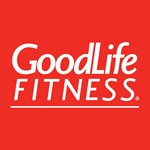When it comes to reaching your fitness goals, proper nutrition is one of the most important components of building a healthy and strong physique. It is really hard to “out-train” bad nutrition, especially if you make it a habit to overindulge in rich and unhealthy foods. That’s why it’s important to have a good understanding of proper nutrition principles.
It’s time to set the record straight on these 5 common nutrition myths.
1. You shouldn’t drink more than eight glasses of water per day
The eight-glass benchmark was never really based on much science. The amount of water a person should drink to keep their body hydrated depends on their body size, the daily activities they’re doing and the temperature/weather conditions.
Don’t judge your level of hydration by how thirsty you feel. A better indicator is the colour of your urine, which should be pale yellow.
2. Low-fat food is always healthier
Talking about fat in food can lead to confusion. There’s a belief that fat in food creates fat in our body, which isn’t necessarily true. Fat is a critical nutrient for our bodies.
If you remove fat from food, you’re changing the taste of the food and the way the body processes it. To improve the taste, something else is usually added and that’s often more sugar, salt and chemical flavouring.
3. Organic is better
Not all foods are necessarily healthier just because they’re organic.
Have you heard of the “Dirty Dozen?” It’s a list of produce that are often grown with pesticides, including strawberries, spinach, tomatoes and apples. It’s those foods that are better if they’re organic, even though organic prices are usually higher.
There is also the “Clean 15”, produce that mainly have thick skins such as avocados and sweet corn. They don’t need to be organic because they’re protected and not affected by pesticide residue.
4. Yogurt is a healthy snack
This depends on your choice of yogurt. About 90 percent of yogurt isn’t a healthy snack because of the sugar that’s added to the popular flavoured types.
Plain Greek yogurt has much less sugar and it’s naturally occurring sugar is in the lactose. Add some fresh fruit to give it a natural flavour boost.
5. Late-night snacking makes you gain weight
This isn’t necessarily true. The body needs to process calories whether they’re consumed in the morning or at night, and your metabolism doesn’t slow down at night.
The downfall of eating at night is that we tend to eat when we’re tired or distracted by TV, leading to unhealthy choices. Even if your schedule means you work out in the evening, you still need to eat healthy food afterwards.
